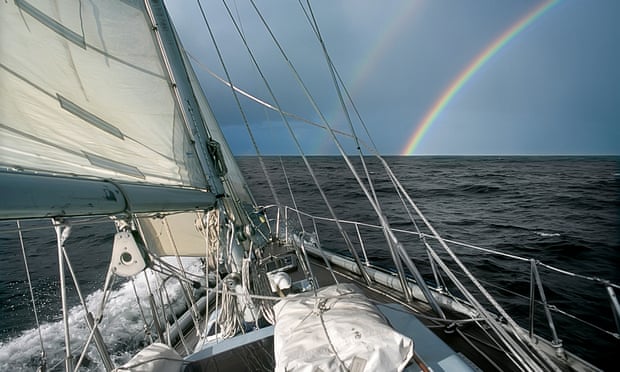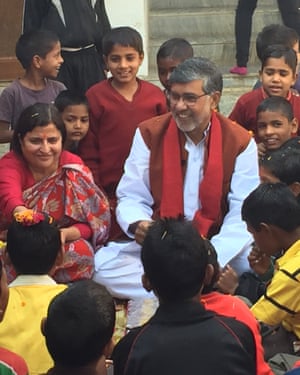Climate change and the value of daring
Posted on 6 June 2016 by Guest Author
The climate system is a unifying ethical field that extends from the physical to the metaphysical and connects your actions to my well-being, and vice-versa, no matter how remote your life is from mine. The Golden Rule we have always treated as an abstract moral recommendation is now visibly playing out its logic in the physical world.
This period in history must be about useful innovations that rescue Earth systems from collapse and dignify human beings everywhere. We must dare to imagine, explore, and remake the limits of our experience, together.

Exploring a new future will involve radical changes in thinking about how we have organized ourselves socially, politically and economically. Photograph: David Thoreson Images
For centuries explorers have traveled the Earth in search of treasure, glory and, in the best cases, discovery. Exploration of our planet in the 21st Century has radically changed, as we now understand the basic science of how our shared planet functions. We can no longer afford to see ourselves as separate from one another, despite wide variations in geography and social organization.
Conflict and war have become obsolete as means to resolve tensions in this new era, defined by the mandate that we become able and reliable stewards of natural systems. Discovery in our age means mapping hidden connections between business practices, political decisions, droughts, floods, the resilience of bee populations, and the reliability of institutions that support well-being at the human scale.
The collective actions of billions of human beings are threatening the most basic systems which provide life to us all on our little blue planet. We have choices to make in how we collect, own and distribute the remaining natural resources that seemed endless just a century ago. Climate change is now integral to human experience and is already multiplying the threats that can lead humanity down the path of perpetual conflict.
Climate disruption creates conditions where harm is more likely, and conditions where harm is more likely also make it more difficult for a society to respond to severe climate impacts. This exacerbates the risk of conflict, migration, and failed states. Such conditions attract criminal networks who prey on people pushed into extreme vulnerability.
The climate challenge puts us in a state of conflict with our own future well-being. The best way to avoid conflict and devastation is to reach success without passing through conflict in the first place. Peace-building is a faster route to health, security and prosperity than conflict-building.
Daring servants of humanity like Kailash Satyarthi—who has rescued 85,000 children from slavery and trafficking—recognize the need to commit to peace-building, education, mutual thriving, and to living with joy and imagination. Satyarthi’s courageous work draws people to it. This is why, at this writing, he is the beating heart of a first-of-its-kind peace congress organized around his work.

Kailash Satyarthi with his wife Shrimati Sumedha Kailash celebrating his birthday and giving boys at Bal Ashram, who do not know their birthdays, their first birthday celebration. Photograph: Gina Torry.
In his Nobel Peace Prize acceptance speech, Satyarthi said:
There is no greater violence than to deny the dreams of our children ... I refuse to accept that the shackles of slavery can ever be stronger than the quest for freedom.
There is a quiet daring that happens in the person who says “I refuse to accept” what is not right. Without that quiet moment of daring, the effort to confront the unacceptable cannot get started.
The value of daring is that it infuses our first step into action with the knowledge that something better is possible.
The resonance of that initial daring must be sustained throughout any effort to craft a better future. Human potential moves across networks of support and rivalry. We receive the unforeseen breakthrough, because many kinds of uncommon daring come together and go beyond ambition, daring the excellence that comes with collaboration. We need to be open to seeing these subtle sparks that show a mind is committed to imagining beyond hardship.
There is no predetermined human type that is right for exploration, public office, pioneering research, or ending slavery.
Joseph Robertson is Global Strategy Director for the nonpartisan nonprofit organization Citizens’ Climate Lobby. David Thoreson is a documentary photographer and the first American to sail the Northwest Passage in both directions.































 Arguments
Arguments






























No doubt there will be many organisations that will do their utmost to encourage measures to cope with what is happening. Irreversible rapid climate change and ocean acidification and warming are largely the unintended consequences of using fosssil fules in industrialzation. Practical reduction in the rate of usage of these fuels can only slow this process down slightly. The main emphasis should be on adaption to such predicaments as sea level rise.